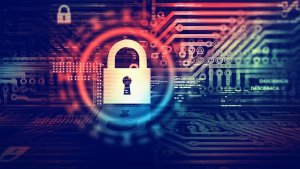Remote working is all the rage, but can you be sure OOO employees' web habits aren't compromising safety?
Are Public Spaces Secure Enough For Mobile Workers?
Remote working is all the rage, but can you be sure OOO employees' web habits aren't compromising safety?

Mobile working has become increasingly common, to the point that it’s no longer a minority trend. Now, it’s an evolution in the way that the modern workforce perceives ‘the office’ and their workplace. Mobile work is being adopted with such speed that half of the UK’s workforce will be working remotely by 2020.
This changing office dynamic is resulting in significant benefits for both the individuals and companies involved.
Avast Business’ Mobile Workforce Report 2018 found that 59% of workers felt they were most effective working outside the traditional office, with one in five feeling that working in public places, such as cafes and libraries, allowed them to be at their most productive.
It is no surprise that businesses are keen to support a policy which improves staff wellbeing and productivity, especially when it also allows savings on the overheads of running a large office space and the opportunity to hire the best people, regardless of their location.
But among all these positives are several risks, not least about the protection of sensitive data. How can businesses be sure that their data is secure, when it’s being accessed on numerous devices all operating outside the traditional security network?
What are the risks of public spaces?
With workers now accessing company data on their personal laptops and mobile devices wherever they are, the security of data needs to become a top business priority.
In many cases, the greatest risk to cyber security is not a malicious, targeted attack. Research shows that 88% of data breaches are the result of human error. From sending documents to the wrong people to losing devices, there are many cases where a simple lack of security awareness from an individual could result in a serious data breach.
Unsecured Wi-Fi
One of the biggest risks for workers in public spaces is that of free public Wi-Fi. Workers in a coffee shop or on a train may be running low on data, or struggling with patchy signal, but they should always resist the temptation to connect to free Wi-Fi services.
In most cases, free Wi-Fi is poorly encrypted or entirely unsecured. This means that any data you send and receive while connected is extremely vulnerable to being intercepted.
It’s one thing for employees to risk their own personal data, but they must be discouraged from using unsecured connections when professional data such as confidential client information is at play.
Fraudulent networks
Network spoofing can also be a significant concern. By setting up fake Wi-Fi points close to legitimate sources, hackers anticipate that unsuspecting users may connect to the wrong service and inadvertently provide access to their connection.
Prime examples are things like ‘Free hotel Wi-Fi’ at a venue that already has a named service, or simply ‘Guest Wi-Fi’ in destinations with multiple possible networks.
Users should also be especially cautious if public Wi-Fi requests an email sign-up to log in. While this is common, users should be careful to not give away personal information and avoid using passwords that are linked to other accounts.
Keeping your data safe
Security software
Ensuring your device has effective antivirus software which is regularly updated is a crucial step towards increasing your security. While necessary, it is a passive step as this software will only alert you when threats arrive. Adopting a proactive approach will minimise the chances of becoming a victim.
A Virtual Private Network (VPN) is an increasing popular tool to protect your entire connection, no matter where you connect. The tool ‘tunnels’ your data through secure servers based around the world, masking your IP address.
This means your activity and location remain anonymous and secure. Many VPNs such as this free VPN Chrome extension also provide end-to-end encryption, meaning that if anyone did access your activity, it would appear as nothing more than unintelligible strings of letters and numbers.
Passwords
It is the most common piece of advice for online security and many people are tired of hearing it, but it bears repeating. A recent report discovered that 81% of breaches were the result of weak passwords, which suggests the message is not getting through.
While it is a common habit for people to reuse passwords on their personal accounts, doing this with any device that has access to company data is incredibly risky.
Before companies agree to allow staff to work remotely, it is vital that they are given enough training to raise understanding and awareness about how little things, like creating strong passwords and utilising Two-Factor Authentication (2FA) are vital to minimising risk.
From here, a Bring Your Own Device (BYOD) policy, will ensure that staff are clear about what is expected in terms of protecting data and should help to separate personal and professional security attitudes, even on the same device.
While the positive benefits of mobile working for businesses and employees alike are numerous, inefficient implementation could bring threats to data security. But with a transparent policy around what is required to maintain that security, working in public spaces can be as secure as the office.
Thanks for signing up to Minutehack alerts.
Brilliant editorials heading your way soon.
Okay, Thanks!

